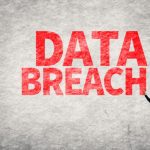Three quarters of retail organizations lack a breach response plan

As online retailers gear up for their busiest period of the year, how prepared are they to face the threat of cyber attacks?
A new study from cyber security company Tripwire reveals that just 28 percent of respondents say they have a fully tested plan in place in the event of a security breach.
Cryptocurrency apps have severe security vulnerabilities, but do investors care?

A market cap of over $350 billion, daily volumes in excess of $10 billion, fast rising prices, a growing number of investors and little to no regulation all combine to make the cryptocurrency space a prime target for hackers. What's more, security is not exactly a main priority for many investors and exchanges, as numerous thefts go to show.
Making things even more complicated is the fact that lots of cryptocurrency apps, that let investors and trader store coins, have dangerous vulnerabilities that hackers can exploit to steal users' funds.
How the healthcare sector is waking up to phishing threats [Q&A]

The healthcare sector is a popular target for phishing attacks, yet it's failing to adopt simple measures like DMARC that could offer protection to both patients and staff.
A new report from cyber security company Agari reveals that fewer than 10 percent NHS Trusts and Boards in the UK have self-certified as using DMARC. Globally 77 percent of healthcare organizations don't have a DMARC policy.
Over 90 percent of cryptocurrency mobile apps contain vulnerabilities

In the week when cryptocurrency values have reached new levels some worrying research from web security firm High-Tech Bridge reveals that more than 90 percent of the most popular cryptocurrency mobile apps on Google Play have common vulnerabilities and weaknesses.
The company used its free Mobile X-Ray service to test apps for security flaws and design weaknesses that can endanger the user, data stored on the device or sent and received via the network, or the mobile device itself.
Most people would stop dealing with companies following a data breach

If a company suffered a data breach, 70 percent of consumers would stop doing business with it, according to a new survey of 10,000 people worldwide.
The study carried out for digital security company Gemalto also reveals that 37 percent now believe that they could be a victim of a breach at any time, compared to those surveyed in 2016 (35 percent) and 2015 (27 percent).
The role of education in fighting security breaches [Q&A]

When securing systems most people's thoughts turn to the technology of firewalls, anti-virus programs and so on. What’s often neglected is the human aspect.
Many breaches are down to poor password practices or falling for phishing emails, things which can be prevented with better education. We spoke to Stephen Burke, founder and CEO of security awareness specialist Cyber Risk Aware to get his views on how awareness training can be used to drive better behavior and make businesses more secure.
70 percent of European IT decision makers see Brexit as a business opportunity

Britain's decision to leave the European Union has sparked mixed emotions in the business world, but a new survey of over 800 IT decision-makers across Europe reveals that most see Brexit as an opportunity.
In the survey of over 800 European IT decision-makers by cloud and network provider Interoute, 70 percent overall believe that Britain leaving the EU is an opportunity for their company. Business confidence surrounding Britain leaving the EU was highest in France (83 percent) and Belgium (78 percent) but lowest in Sweden (49 percent).
SailPoint launches updated identity governance platform

Identity management company SailPoint is announcing enhancements to its open identity platform, designed to enable identity to be woven throughout the IT operations and security fabric of organizations.
IdentityIQ version 7.2 enables a unified approach to identity governance that shares identity information across all IT and security investments.
Almost half of UK infrastructure will have moved to the cloud in six months

A new survey of UK IT decision makers by cloud and network provider Interoute shows the cloud is increasingly seen as the best platform for providing scalable infrastructure.
The results reveal that businesses plan to move on average just under half (46 percent) of their infrastructure to the cloud over the next six months.
Brexit impact on UK jobs market may be overestimated

New reports are arguing that Brexit may not have such a major effect on the UK's tech sector as previously imagined.
Research released by Tech City UK and Nesta claim that foreign workers are more likely to have come from outside the EU, meaning that losing EU-based workforce may not be as "dangerous" for businesses as previously thought.
Most organizations aren't sure where their data is stored

The modern IT landscape means that information can be stored across a number of platforms and locations. It's perhaps not surprising then that only 47 percent of organizations know where their data is stored at all times according to a new study.
The survey by McAfee of 800 business decision makers looks at how enterprises are looking after their data in the light of legislation including GDPR.
UK businesses have a culture of secrecy towards data breaches

At a time when British businesses should be bolstering and updating their data protection policies in preparation for new legislation, it is worrying to report a culture of secrecy and ambivalence towards data breaches across the country.
With the EU General Data Protection Regulation (GDPR) due to come into force on May 25 next year, bringing with it huge fines of up to 20m Euros or four percent of turnover, a survey has revealed the real extent of Britain’s data breach problem.
Two billion data records were stolen or lost in 2017 so far

Almost two billion data records were either lost or stolen in the first half of this year, according to a new report by Gemalto.
The company found that 1.9 billion records were lost or stolen during the first half of 2017 -- more than in the whole of last year, and equivalent to 10,439,560 records per day -- or roughly 3,000 whilst you read these few sentences.
Public cloud security is a concern for most IT pros in UK

An overwhelming majority of the UK’s IT professionals (90 percent) have their worries when it comes to securing the public cloud, according to a new study.
Research by Bitdefender found that 90 per cent of British professionals had concerns around the security of public cloud. A fifth (20 per cent) also said that their business doesn’t have security measures set up for sensitive data outside the company infrastructure.
Intelligent data platform drives digital transformation

Businesses are more keen than ever to unlock the power of their data, but often struggle to come up with a strategic approach.
Cloud data management company Informatica is launching its latest Intelligent Data Platform driven by the CLAIRE engine which uses metadata-driven AI to deliver faster insights.
© 1998-2025 BetaNews, Inc. All Rights Reserved. About Us - Privacy Policy - Cookie Policy - Sitemap.